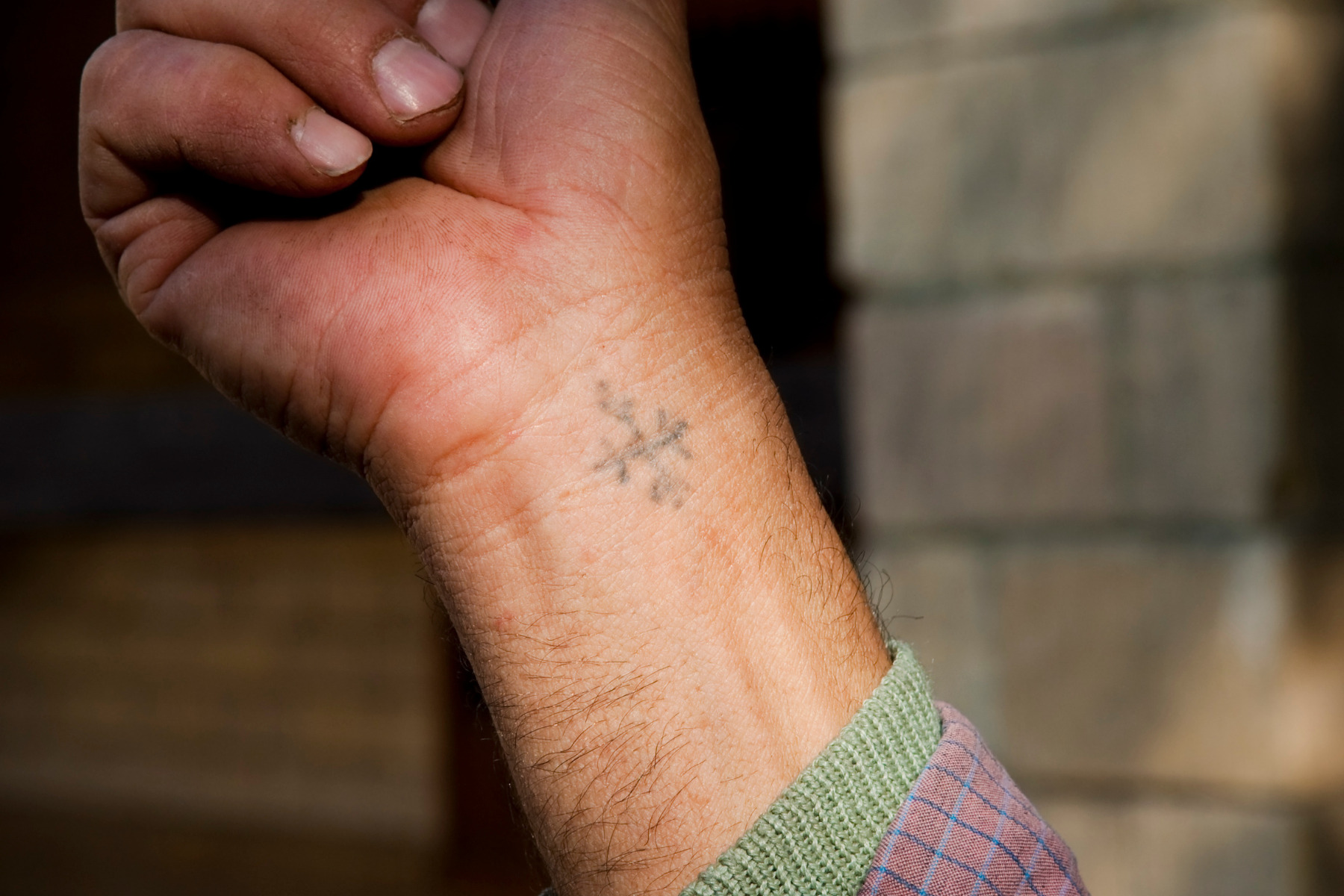Attentiveness: Tattoo

I have noticed a lot of tattoos lately.
Walking on the beach it becomes much more evident how many people have tattoos, how much variety there is to the tattoos, and how many people are virtually covered with tattoos, from ears to ankles.
Some tattoos are so intricate that they only take on real form, and often a type of message, when viewed up close. Others, like the massive depiction of the goddess Kali, come across more like a billboard or like wallpaper that can be viewed from a distance. One man’s back and arms looked like a beautiful tropical jungle, with birds and snakes peering through the leaves.
My wife has recently taken the time to get to know people by asking about their tattoos. I think this is a great idea. Every tattoo has a story. Most people don’t just get a tattoo because they are bored. There is a story, a statement they want to make, a memory they want to seal, a love they want to commemorate, or a message they want to deliver. Sometimes this message is obvious. A heart with a woman’s name is usually an expression of devotion to a mother, wife, or potential wife (!). A cross or Bible verse is self-explanatory. And then there are bodies that carry messages of hate, violence, and death.
When looking at the many hyper-tattooed people I have seen lately, I have been reminded of the small tattoos on many Egyptian Christians. The small Coptic cross tattooed onto the wrist of many Coptic (as well as Protestant) Christians has historic and missiological meaning.
From the time of the Arab conquest of Egypt in 646, Christians who refused to convert were tattooed with a cross so it was clear that they had to pay the jizyah, or the tax that non-Muslims had to pay to Muslim rulers. This tax was often very high and would handicap the Christian community. Later Christians in Egypt were not required to have the tattoo marking them apart from the majority community, but they voluntarily took on a public Christian identity. No compromising. No hiding your Christian identity when people see the cross every time you pick up your food or shake someone’s hand.
Tattoos are an enfleshed memory of something in the past. These very important events, embedded in our mind and often inked into our skin, remind us of who we are. Our identity is very much shaped by our past, both what we do and what happens or is done to us. And, in this fallen world of God’s beautiful creation, these memory-events are a syncretism or weaving of good and bad. This may sound a little fatalistic or deterministic, but it is true that we are very much what we have experienced.
Yet we are not confined or determined only by our past. What we have done and what has been done to us is not the last word. To turn the tattoo image around, God’s love for us is marked, if you will, on God. He does not forget us in our woundedness, our pride, or our loss. God’s memory of us is flushed with love, compassion, and healing, for he has suffered for and he suffers with us.
I just discovered a wonderful translation of Isaiah 49 that puts these issues in perspective:
Can a woman forget her nursing child,
That she should have no compassion on the son of her womb?
Even these may forget,
Yet I will not forget you.
See, I have tattooed your name upon my palm . . .[1]
The greater truth about who we are is the redemptive memory of God on our behalf.
All the more I appreciate the little Coptic cross on the wrist of a believer as an incarnate reminder of our true identity recovered.
[1] Isaiah 49:15-16 English Standard Version; 16a Living Bible Translation
 Dr. Scott W. Sunquist, President of Gordon-Conwell Theological Seminary, is author of the “Attentiveness” blog. He welcomes comments, responses, and good ideas.
Dr. Scott W. Sunquist, President of Gordon-Conwell Theological Seminary, is author of the “Attentiveness” blog. He welcomes comments, responses, and good ideas.